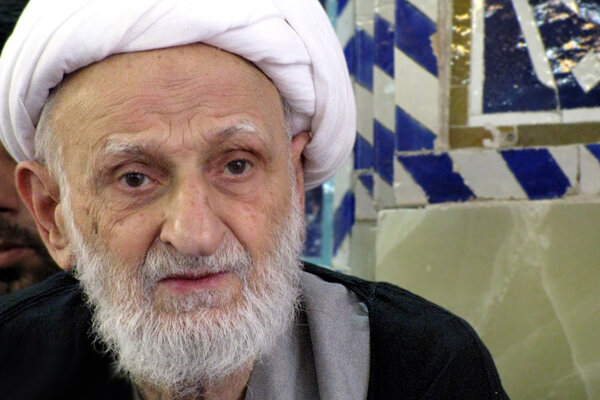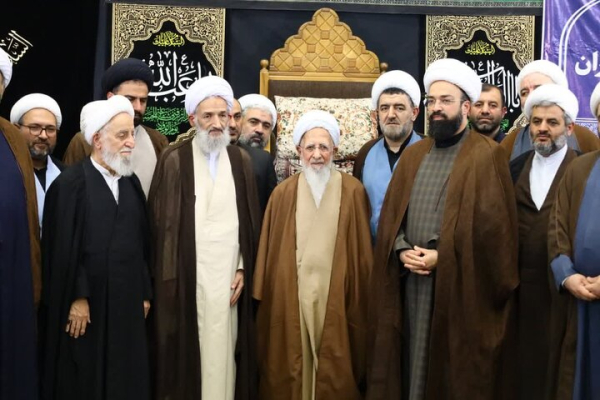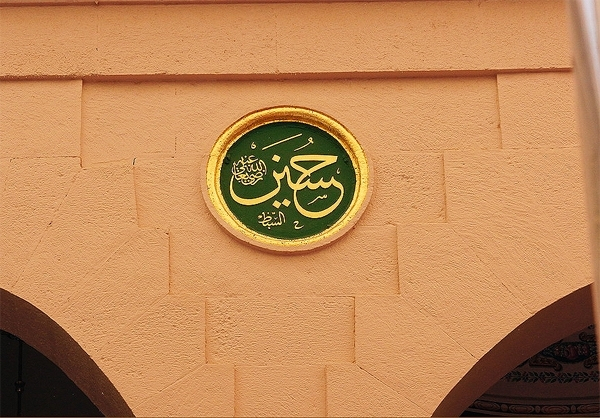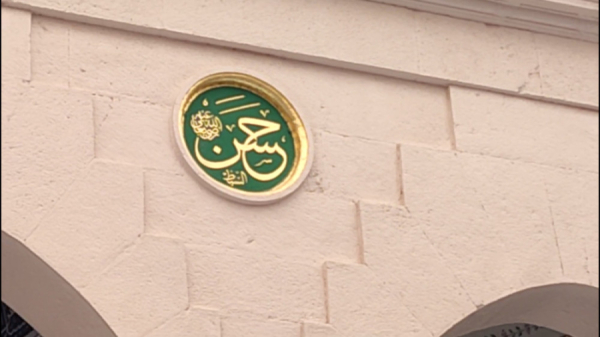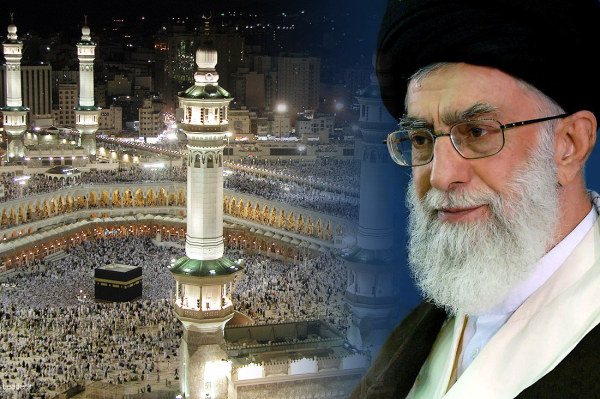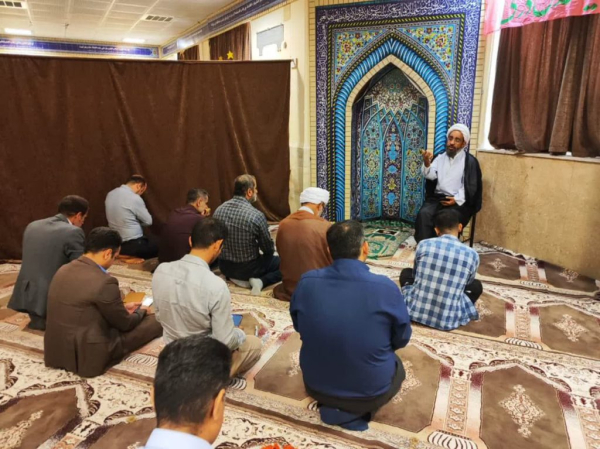zarezadeh
Sin is poison
Moral points from Ayatollah Bahjat (may Allah have mercy on him)
There is no higher and more important remembrance than the constant and permanent determination to abandon sin; that is, resolve that even if God gives you a hundred years to live, you will not commit even one sin, just as if you live a hundred years, you will not be willing to drink even a single drop of poison; the truth and reality of sin is poison.
For how many things is it obligatory to perform ablution?
For how many things is it obligatory to perform ablution?
Answer: Six things
-1 For obligatory prayers other than the funeral prayer
-2 For forgotten prostration and tashahhud, if he has done something between them and the prayer, for example, urinating.
-3 For the obligatory circumambulation of the Kaaba
-4 If he has made a vow, covenant, or oath to perform ablution.
-5 If he has made a vow to touch the writing of the Quran with a part of his body.
-6 He must perform ablution to wipe a Quran that has become impure.
How many conditions are there for a correct ablution?
How many conditions are there for a correct ablution?
Answer: There are thirteen:
-1 The water for ablution must be pure
2 The water for ablution must be absolute
3 The water for ablution must be permissible
4 The container for ablution must be permissible (not usurped)
5 The container for ablution must not be made of gold or silver
6 The parts of ablution must be pure when washing and wiping
7 The time for ablution and prayer must be sufficient
8 The person performs ablution with the intention of approaching the person
9 The person performs ablution in order
10 The person performs the ablution one after the other
11 The person does not perform ablution for the person
12 The person does not cause harm
13 The person does not have anything in the parts of ablution that prevents the water from reaching them
How can one recognize a Mujtahid who is the best scholar?
How can one recognize a Mujtahid who is the best scholar?
Answer: There are three ways to recognize a Mujtahid that is the best scholar:
-1 The person himself must be certain.
-2 Two just scholars who can recognize a Mujtahid and a scholar must confirm it, provided that the two just scholars do not contradict their statement.
-3 The statement of scholars who can recognize a Mujtahid and a scholar must be confirmed.
Who should be imitated?
Who should be imitated?
Answer: One should imitate a Mujtahid who is a complete Mujtahid, meaning a Mujtahid who is a man, an adult, a sane Shiite, who is not greedy for the world, and who is more knowledgeable than other Mujtahids, meaning he is lawfully born, alive, and just in understanding the rulings of the Twelve Imams;
and also, according to obligatory precaution, he should be more knowledgeable and accomplished than a Mujtahid from all the Mujtahids of his time.
The Story of Imam Husayn (A)
Imam Husayn (S) is the grandson of Prophet Muhammad (S) and the son of both Imam Ali (A) and Lady Fatimah (A). Prophet Muhammad (S) adored him and credited him with a number of important merits during his life. However some 50 years later he was brutally massacred for refusing to side with a corrupt tyrant. This is the story of Imam Husayn (A).
After the death of Muawiya, the son of Abu Sufiyan, his son Yazid came into power as a Caliph. This was in direct contradiction with the conditions of the truce that Muawiya had signed with Imam Hasan two decades earlier, where the caliphate was meant to return to Imam Husayn. As Yazid came into power and the Article of the Truce was broken, he began demanding allegiance from Imam Husayn in order to get support and legitimacy for his rule. Imam Husayn refused to give his allegiance to Yazid.
However, the situation in Medina became dangerous for the Imam, and he had no choice but to leave the city along with his family for Mecca. When he arrived in Mecca, the Imam began to receive numerous letters from residents of Kufa, many of whom were demanding that Imam Husayn should come to their city so that they could assist him in over throwing Yazid. A great deal of deliberation took place between the Imam and his companions, although most senior figures in Mecca told the Imam to abandon his journey to Kufa, the Imam, with his knowledge and wisdom, believed it was necessary to head towards the city of the people who had written to him and requested for his presence.
Earlier the Imam had also sent his ambassador and cousin, Muslim bin Aqil, to evaluate the situation on the ground in Kufa, and he was reassured that the grounds were ready for his arrival. During the Imam's journey to Kufa, he stopped at a junction called Jabala, where he was informed about the events that were unfolding in the city of Kufa. Yazid had replaced the previous governor with a more notorious person known as Ubaidullah Ibn Ziyad, who immediately cast terror and fear amongst the loyal supporters of Imam Husayn.
He had also quickly arrested Muslim bin Aqil and executed him. Many of the Kufan supporters of Imam Husayn were sent into shock and terror, eventually retracting back on their requests to the Imam. Some completely abandoned and betrayed their previous show of support. Those few who refused to back down were incarcerated by Ubaidullah Ibn Ziyad. The Imam, nevertheless, decided to move towards Kufa, hoping that if he could enter the city, his supporters may be motivated to rejoin him. However, he was blocked in doing so, by a battalion sent by Ibn Ziyad, led by Hurr Ibn Yazid.
Hurr prevented the Imam from entering the city and did not allow him to return back to Madina either. His battalion forced the Imam, his small group of followers and his family members to move towards a deserted and barren land called Karbala, which they reached by the 2ndof Muharram 61 Hijri. Once the Imam arrived in Karbala, Ibn Ziyad sent a large regiment of soldiers led by Umar Ibn Sa'ad, to confront the Imam. A few days of deliberation and exchange took place until on the 7th Muharram, the army of Umar Ibn Sa'ad blocked access to the river, for drinking water, to the Imam's camp.
On the 10th of Muharram, the Imam was repeatedly asked to give allegiance and to put his hand into the hand of Ibn Ziyad and ultimately Yazid, the Caliph. The Imam repeatedly refused to accept such an option. He chose martyrdom and death over the humiliation of having to give allegiance to the suppressive tyrant. An all out battle ensued, resulting in the martyrdom of Imam Husayn, along with his family and his companions in the most brutal of manners. The womenfolk and children were later taken to Damascus in the presence of Yazid, who rejoiced over his actions and showed no regret over his decisions.
Al Islam site
Imam Hasan ibn Ali, al-Mujtaba (p)
Imam Hasan ibn Ali, al-Mujtaba (peace be upon them)
Name: Hasan
Title: al-Mujtaba
Kunya: Abu Muhammad
Father: Ali ibn Abu Talib (Peace be upon him)
Mother: Fatimah bint Muhammad (Peace be upon them)
Born: 15th Ramadan, 3 AH/624 CE in Madinah, Hejaz region of the Arabian Peninsula
Died: 7th Safar, 50 AH/670 CE, after being poisoned by his wife, Ja’da.
Age at Martyrdom: 48
Period of Imamate: 9 years
Buried: Baqi’, Madinah, Hejaz region of the Arabian Peninsula
The Prophet's Grandson
Imam Hassan (AS) was the beloved grandson of the Prophet (PBUH) and the two had a special bond. The love between them was visible in private and public. He would hold Imam Hassan (AS) on his back and say, "O Allah, I love him, love him too!"
When the Prophet passed away, Imam Hassan (AS) was still a seven-year-old boy who missed his grandfather.
The Prophet was often heard praising Imam Hassan (AS). The Prophet praised both his grandsons and said, "Hasan and Hussain are the leaders of the youth in Paradise."
In other words, Imam Hassan (AS) is the leader of all the people of Paradise. With these narrations, the Prophet was referring to the great qualities that Imam Hassan (AS) displayed. There is no doubt that Imam Hassan (AS) was the most worthy person for the position of Imamate after his father, Imam Ali (AS).
Unity and Spirituality in Hajj
Ayatollah Khamenei also noted the point regarding unity that the political and cultural leaders of Islamic countries must coordinate with each other to prepare themselves for the conditions of the upcoming world order so that the Islamic Ummah can regain its rightful place.
He considered "spirituality", which is another of the two pillars of the effectiveness of the global call for Hajj, to mean promoting religious morality and confronting the charm of Western morality minus religion, and noted: Today, when the "unity" and "spirituality" of the Islamic Ummah are more exposed to hostility than before due to the opposition of America and other poles of arrogant domination to understanding Muslim countries and the religious education and religious education of the young generation of these countries, it is the duty of all Muslim nations and governments to confront this malicious plan.
Decorating the Sky with Stars
إِنَّا زَيَّنَّا السَّمَاءَ الدُّنْيَا بِزِينَةٍ الْكَوَاكِبِ
Indeed We have adorned the lowest heaven with the finery of the stars,
Scientific Point
God Almighty says in the above verse: "We adorned the lower heaven with stars," while the hypothesis that dominated the thoughts and scientists at that time said that only the upper heaven (the eighth heaven according to Ptolemy's hypothesis) was the sky of fixed stars.
However, as we know, the invalidity of this hypothesis has been proven and the Quran's failure to follow the famous incorrect hypothesis of that time is itself a living miracle of this heavenly book.
Another interesting point is that from the point of view of today's science, it is certain that the beautiful twinkling of the stars is due to the atmosphere that surrounds the Earth and makes them do this, and this is very appropriate with the expression "as-sama' al-dunya" (the lower heaven), but outside the Earth's atmosphere, the stars do not have the beautiful twinkling state.
Practical rulings
Practical rulings are commands and laws in acts of worship and transactions that determine the practical duties of those who are obligated, and for this reason they are also called obligatory rulings.
These rulings concern speech, actions, and the performance of various affairs of life.
The rulings are divided into five groups, and for this reason they are also called the five rulings:
Obligatory: an action that is obligatory to perform and not to perform is a sin, such as prayer, fasting, and Hajj.
Recommended: an action that is good to perform but not to perform is also okay, such as the prayer of ghifaylah.
Haram: an action that is obligatory to abandon and prohibited to perform and is a sin, such as lying and backbiting.
Makruh: an action that is good to abandon but not to perform is also okay, such as overeating.
Permissible: an action that is equally performed and abandoned according to the Sharia, and no reward, punishment, praise, or dhimmi have been stated about it.
The five commandments have been defined from another perspective as follows: Obligatory is an act that is obligatory and its omission is punishable, such as prayer and fasting. Haram is an act that is obligatory and its omission is punishable, such as lying and oppression. Recommended is an act that is good and has a reward but its omission is not punishable, such as greeting and giving charity. Makruh is the opposite of Mustahab and is an act that is good and has a reward but its omission is not punishable, such as blowing on food and eating hot food. Permissible is an act that is equal in its performance and omission, and has neither a punishment nor a reward, such as walking and sitting.
